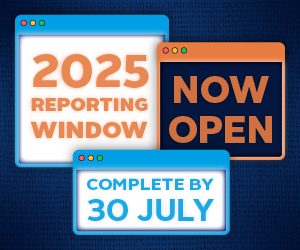Executive summary
This guide provides a suggested framework for fund managers and asset owners to incorporate ESG factors into hedge fund strategies. The heterogeneous nature of hedge funds as an asset class means there are important differences from long-only funds in terms of how they might incorporate, develop and implement a responsible investment (RI) policy. Due to the sheer breadth and range of trading instruments and market strategies spanning equities, fixed income, commodities and FX, some hedge funds are likely to be better placed to integrate an RI policy than others.
The paper identifies client demand, materiality and regulation as key drivers to the increasing interest in RI in hedge funds. With respect to client demand, although ESG funds have been growing in the long-only market for some years, institutional investors are becoming increasingly interested how hedge fund managers are applying ESG factors in their portfolios. With regards to how regulatory environments may differ between funds and strategies and an analysis of materiality, the PRI has created various materials to support asset owners and hedge fund managers in broadening their understanding - including the Responsible Investment Regulation Map and a register of academic research.
The central pillar of this guide focuses on how a responsible investment framework might be incorporated, developed and implemented by hedge fund managers to respond to these drivers. It is divided into four modules or steps: I) Policy; II) Governance; III) Investment Process; IV) Monitoring & Reporting.
Module I: Policy
The report outlines that a responsible investment policy be formulated both at the investment manager level and the fund or portfolio level. The firm level policy should then apply to the firm-wide assets under management and provide clear details on how ESG considerations are integrated into the investment strategy. This might be incorporated into formal agreements such as the Investment Management Agreement. For hedge funds, the implementation of an RI policy might also have implications for external agreements including Trading and Prime Brokerage Agreements and Administration Agreements.
Module II: Governance
Governance is identified as a core component to an RI framework. At a fund level, governance structures should include a written RI policy, processes, practices and reporting. The fund board should monitor and supervise the execution of this activity. To facilitate this oversight, the board should have sufficient topic expertise and knowledge.
At the firm level, the report highlights that a manager may want to consider a separate committee to help supervise all aspects of the RI process. This is advised to ensure successful implementation of the policy and that the manager’s activities remain in compliance.
At the fund or firm level, relevant RI-related KPIs could be introduced to achieve a close alignment of interests between the manager, the fund board and the end investors. These KPIs could apply to individual portfolio managers and become part of their compensation package.
Module III: Investment process
This section outlines some key RI issues surrounding specific asset classes or financial instruments including equities, fixed income, commodities and security indices as relevant to hedge fund managers’ investment process. It is not a conclusive list and links to other PRI publications.
While there are investment processes and ownership practices, such as proxy voting, that overlap between longonly and hedge fund strategies, there are also important differences such as short-selling activities. Short selling can be used to express investment views on companies or issuers that may not be adequately managing ESG factors, and the PRI and International Corporate Governance Network have developed practices and guidance relating to this activity. Nevertheless, some of PRI’s asset owner signatories are concerned about the impact short selling has on shareholders’ rights, exercising stewardship and its potential impact on share prices1.
Module IV: Monitoring and reporting
The final section focuses on PRI’s Principle 6. This requires all signatories to report on their activities and progress towards implementing the Principles. This report focuses on monitoring and reporting on:
- How ESG issues are integrated within investment practices;
- Disclosure of active ownership activities (proxy voting and policy or corporate engagement); and
- Public reporting on impact of active ownership activities and investment practices.
This reporting should be timely, consistent, recurring and incorporate real world impacts to allow asset owners and beneficiaries to compare, track and engage with managers. Reporting expectations might be laid out in the Investment Management Agreement.
Though we do not cover every strategy in this guide, we outline some of the new practices across the industry and outline a structured approach to integrating or thinking about ESG in the investment process. It should be read in the context of other work the PRI has completed in this area, including our due diligence questionnaire for asset owners investing in hedge funds.
Downloads
Technical guide ESG incorporation in hedge funds
PDF, Size 2.22 mb
References
1 FT Opinion FTfm January 2nd 2020 ‘ Japan’s GPIF is right — short selling is downright irresponsible’ & GPIF December 19th 2019 ‘Suspension of Stock Lending Activities’












